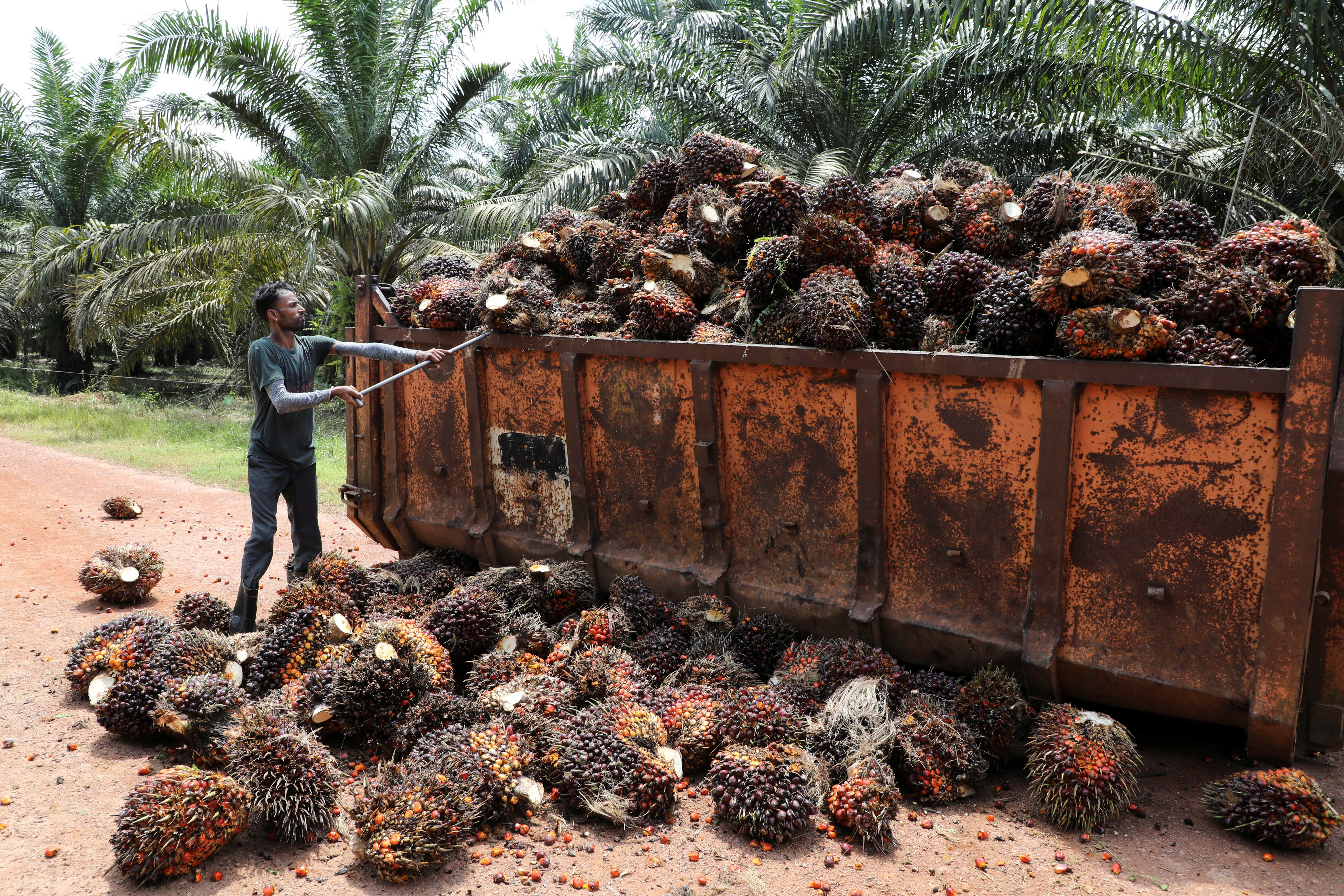Eco campaigners go ape over UK’s latest Brexit deal
UK preparing to lift tariffs on palm oil from Malaysia as price for joinging CPTPP trade agreement

Britain is preparing to sign off on a post-Brexit trade deal that campaigners say will encourage further destruction of nature, threaten the habitat of orangutans in Malaysia and make a mockery of the government’s claims of being committed to tackling deforestation abroad.
UK negotiators are finalising terms of entry into the Comprehensive and Progressive Trans-Pacific Partnership (CPTPP) – an agreement that the government has long held up as an example of the country’s ability to trade globally after leaving the European Union.
Ministers will reportedly sacrifice import tariffs on palm oil from Malaysia, a product blamed for widespread deforestation, as a price for joining the 21-member regional trade agreement, following two years of negotiations.
But the move has angered wildlife campaigners.
Angela Francis, director of policy solutions at WWF, said the government must set better environmental trade standards if it is “serious about trading in a way that delivers on its climate and nature promises”.
“The lowering of tariffs on Malaysian palm oil is a stark illustration of the problem with UK trade policy,” she said.
“Currently, there are no environmental standards on goods that enter the UK market but trade deals which lower tariffs, such as the CPTPP, encourage us to import food produced in ways that destroy natural habitats or use harmful pesticides which would be illegal in the UK.”
Ms Francis added that the government must “fix this” by setting core environmental standards – a minimum environmental threshold for imported products.
“That would show that the UK is serious about trading in a way that delivers on its climate and nature promises and safeguards the high standards UK producers are already required to meet.”
Malaysia is one of the CPTPP members and has successfully demanded that the UK cuts its palm oil tariffs, which currently range up to 12 per cent, to zero as soon as it accedes to the trading partnership, according to The Financial Times.
The UK first applied to join the CPTPP during Liz Truss’s tenure as international trade secretary and forms part of the government’s approach to pivoting away from the EU towards the Indo-Pacific region,
Other members of the group include Canada, New Zealand, Australia, Singapore, Japan, Chile, Vietnam and Mexico, as well as Malaysia. Sources said the UK wanted to gradually phase out tariffs on palm oil but this was rejected by Malaysia, which has a population of around 33 million and an annual GDP of $373bn.
UK politicians have warned that there was a “clear risk” to the UK joining the group, which they argued would produce only negligible benefits for the UK economy while putting standards at risk.

Negotiators are expected to finalise a broad agreement over the coming week before the UK officials sign onto the partnership over the summer.
Malaysia is the world’s second-biggest producer of palm oil, the harvesting of which campaigners say has an extremely harmful impact on the environment.
It is harvested from oil palm trees, which can live for an average of 28 to 30 years, and is used in a host of everyday products – in everything from food to cosmetic products.
Once the trees grow too high, making it difficult for producers to reach the fruit, they are cut down to make room for new trees, which campaigners say contributes to deforestation and damages biodiversity.
To keep up with the incredibly high demand for cheaply produced oil, acres of rainforest are being cut down, leading to a loss of animal habitat for endangered species.
An estimated 100,000 orangutans have been killed as a result of palm oil over the past two decades, according to one study.
Alex Wijeratna, senior director at deforestation campaign group Mighty Earth, said: “The removal of tariffs on palm oil products from Malaysia without any environmental safeguards makes it very hard for the UK to call itself a climate leader committed to tackling deforestation and protecting precious habitats of endangered species.”
The EU has agreed to ban the sale of palm oil and other commodities linked to deforestation unless importers can show that production of their specific goods has not damaged forests. The UK, meanwhile, has a relatively light regulatory approach, with a law that only addresses deforestation defined as illegal under local laws in producing countries.
The Department for Business and Trade said it would not comment on ongoing negotiations.






Join our commenting forum
Join thought-provoking conversations, follow other Independent readers and see their replies
Comments